
Inheritance in Java & Types of Inheritance Simple Snippets
In this manner, multiple types of inheritance can be used within the same hierarchy structure, that is termed Hybrid inheritance. Hybrid Inheritance Programs in Java. Hybrid inheritance can be implemented using combination of single, multilevel, and hierarchical inheritance. Below is a simple example for the same. Example 1.

Types of Inheritance in Java Single, Multiple, Multilevel, and Hybrid Inheritance
Program: This example is just to demonstrate the hybrid inheritance in Java. Although this example is meaningless, you would be able to see that how we have implemented two types of inheritance (single and hierarchical) together to form hybrid inheritance. Class A and B extends class C → Hierarchical inheritance.
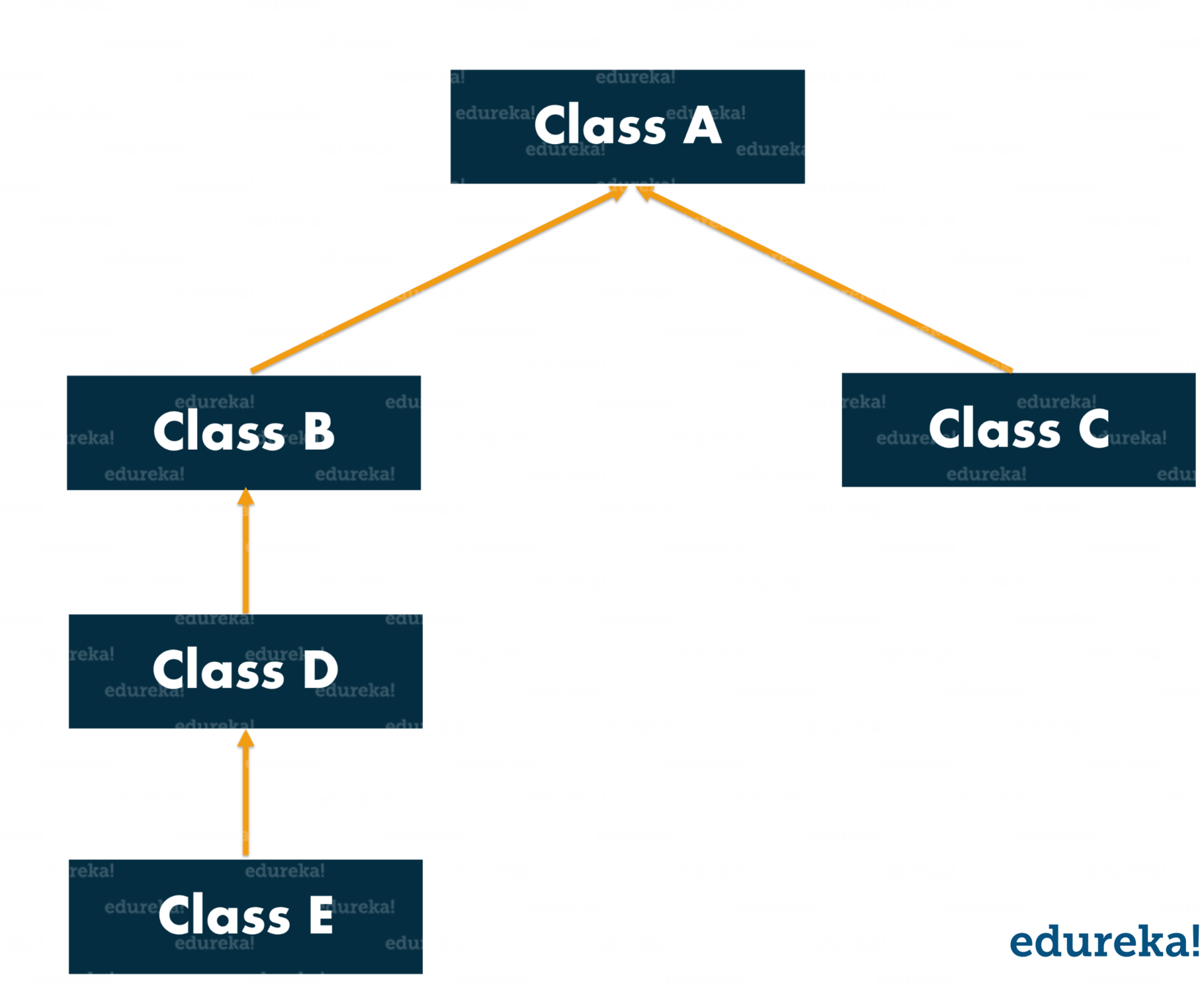
Inheritance in Java Object Oriented Programming Concepts Edureka
In Java, inheritance is an is-a relationship. That is, we use inheritance only if there exists an is-a relationship between two classes. For example, Car is a Vehicle. Orange is a Fruit. Surgeon is a Doctor. Dog is an Animal. Here, Car can inherit from Vehicle, Orange can inherit from Fruit, and so on.

113. Hybrid Inheritance in C++ (Hindi) YouTube
Now coming to Hybrid Inheritance it is evident from the name that it is mixing of two different types of inheritance. Here B is inheriting from A and C so it is an example of Multiple Inheritance and D is inheriting B which is an example of Simple Inheritance so in total we can say that this is an example of Multiple Inheritance. 1. 2.

Hybrid Inheritance in Java Coding Ninjas CodeStudio
Hybrid Inheritance in Java is a powerful feature in Java that enables developers to create complex class hierarchies with a combination of multiple inheritance and hierarchical inheritance. One real-world example of hybrid inheritance in Java is the creation of a vehicle class hierarchy. All vehicle kinds, including cars, trucks, and motorbikes.
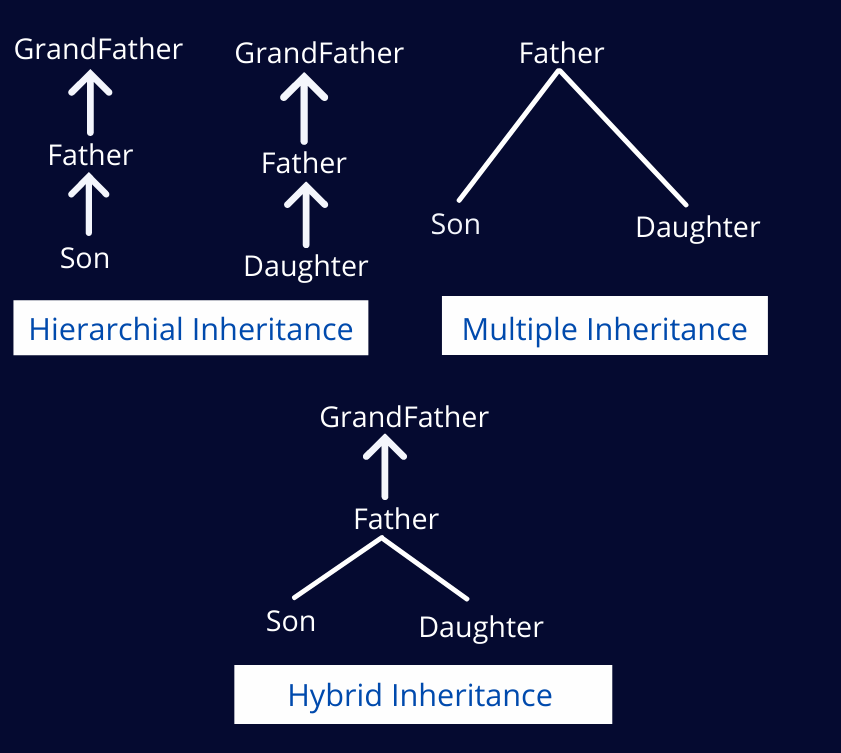
Hybrid Inheritance in Java All you need to know Entri Blog
The fundamental goal of hybrid inheritance is to enhance code reuse by making it simpler for programmers to use the properties and methods that already exist in other classes. In Java, hybrid inheritance is essentially the fusion of multiple inheritance types. One or more combinations of "Single and Multiple Inheritance in Java", "Hierarchical.

Hybrid Inheritance in Java (Hindi) YouTube
The fundamental idea of inheritance is the creation of a class with features of an already pre-existing class to increase reusability and avoid any form of code repetition or redundancy. The four types of inheritance that exist in java are as follows:-. Single Level Inheritance. Multi-Level Inheritance. Hybrid Inheritance.
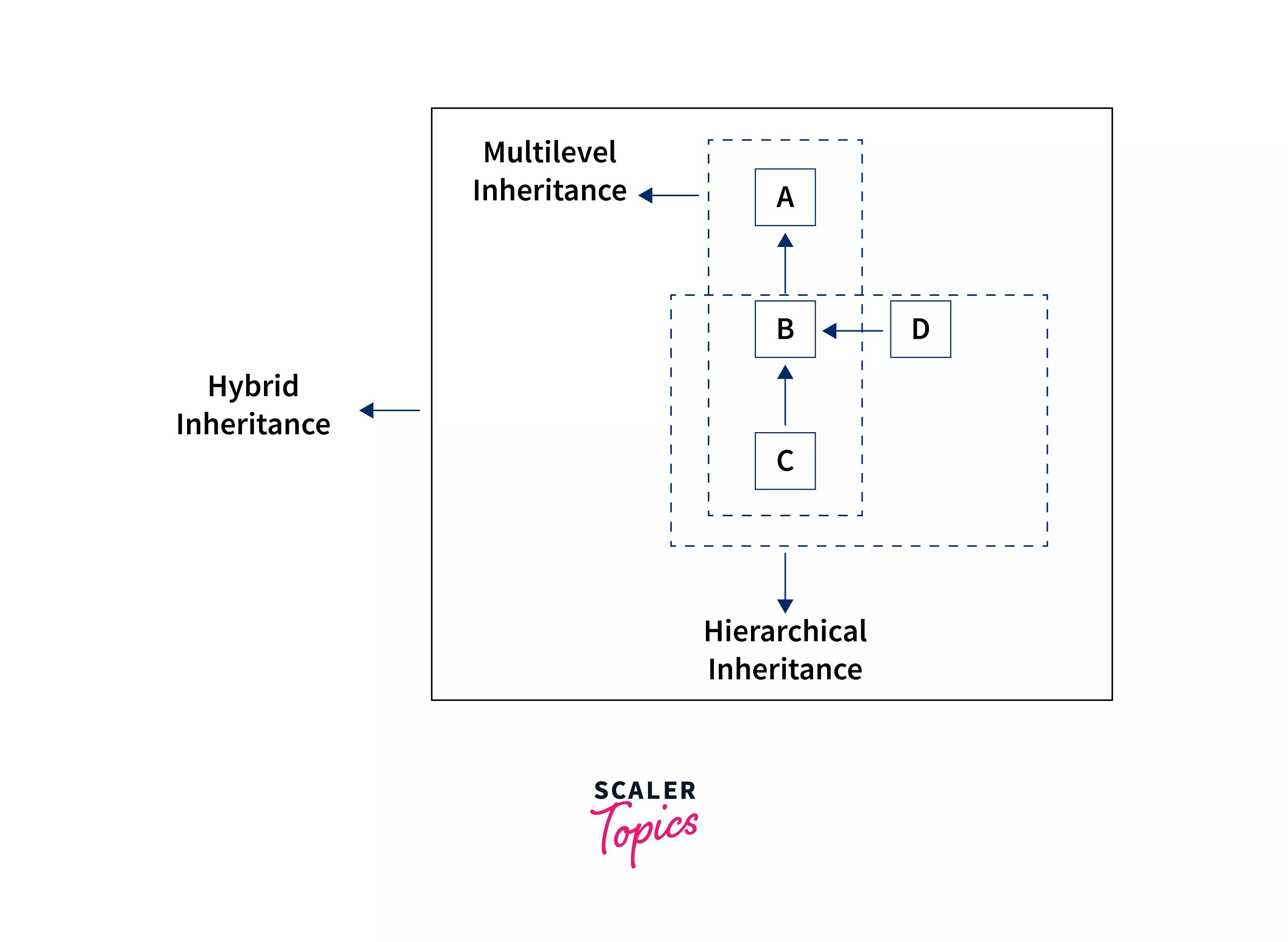
hybrid Inheritance in Java Scaler Topics
5. Hybrid Inheritance in Java. Hybrid inheritance is a combination of two or more types of inheritance in Java. Same as Multiple Inheritance, Hybrid Inheritance is also not supported by using Java classes; however, we can achieve this type of implementation using the Java Interface. Let's understand hybrid inheritance through the diagram below.

Hybrid Inheritance in Java Coding Ninjas
Hybrid Inheritance in Java is a combination of inheritance. In this type of Inheritance, more than one kind of inheritance is observed. For example, if we have class A and class B that extend class C and then there is another class D that extends class A, then this type of Inheritance is known as Hybrid Inheritance.

Inheritance In C C Multilevel Inheritance With Examples Images and Photos finder DaftSex HD
This blog will discuss hybrid inheritance in Java in detail, along with codes and examples. Inheritance. Inheritance is a crucial part of object-oriented programming. The process of inheriting the properties and behavior of an existing class into a new class is known as inheritance. We will reuse the original class methods and fields in a new.
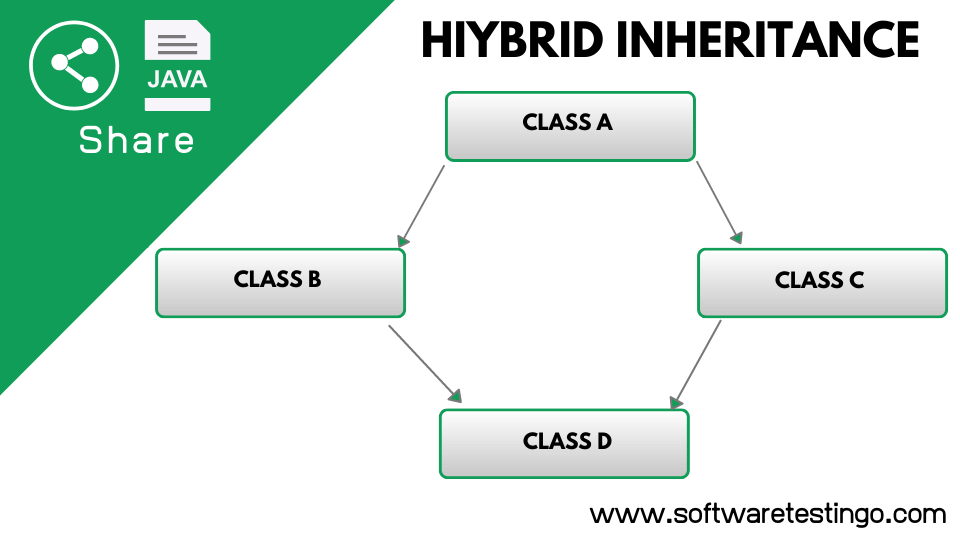
Inheritance in Java Example Types Of Inheritance { 2023 }
Inheritance is a property of the JAVA language where in the functions and members of one class can be inherited and used by other classes. This helps in advancing the usage of clean code and reusability. JAVA does provide different kinds of inheritance but multiple inheritances. To overcome this shortcoming, JAVA uses hybrid inheritance with.
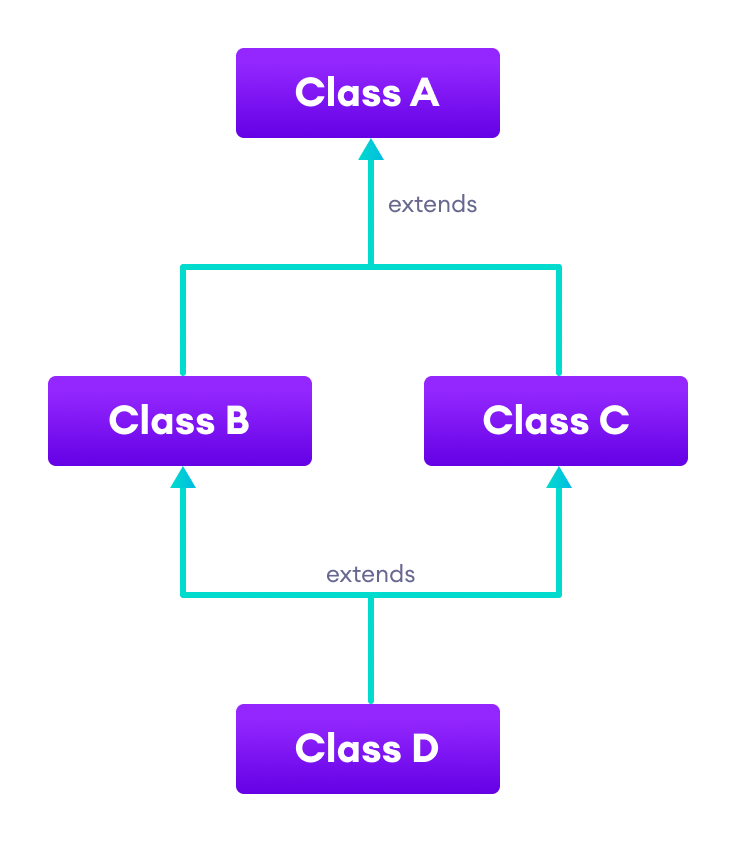
Java Inheritance (With Examples)
Java supports three types of inheritance in Java: single-level, multilevel, and hierarchical inheritance in the case of classes to avoid ambiguity. In Java programming, multiple and hybrid inheritance is supported through the interface only. 1. Single Inheritance Example. When a class inherits another class, it is known as a single inheritance. 2.

132. Hybrid Inheritance in Java Programming (Hindi) YouTube
Read. Practice. Jobs. Java, Inheritance is an important pillar of OOP (Object-Oriented Programming). It is the mechanism in Java by which one class is allowed to inherit the features (fields and methods) of another class. In Java, Inheritance means creating new classes based on existing ones. A class that inherits from another class can reuse.
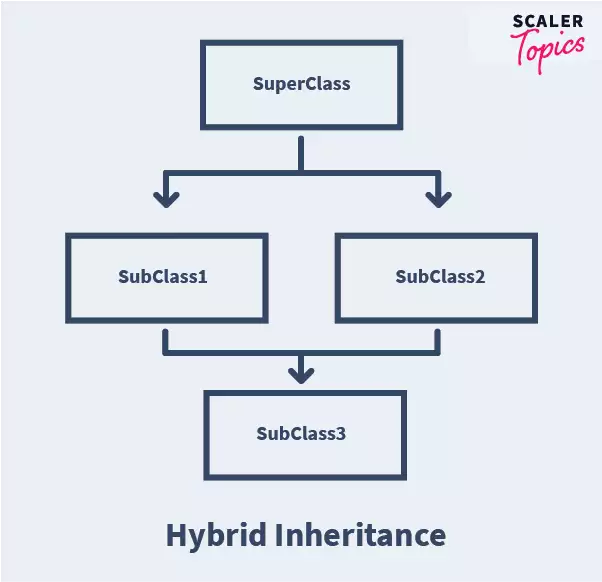
Inheritance in Java Scaler Topics
What is hybrid inheritance in java: Inheritance is an important part of object-oriented programming. A class can inherit features from another class. One is called the parent class and the other one is called the child class. The child class inherits properties from the parent class. There are different types of inheritance in Java and hybrid.

Tutorial At Home
Hybrid Inheritance. Hybrid inheritance in Java is a combination of two or more types of inheritances. Example: Class D inherits from class C and class B, and both the classes B and C inherit from class A. Java doesn't support Hybrid inheritance as well. We have covered these in detail in our other blogs.

Why Hybrid Inheritance is a Diamond problem in Java? (Hindi) YouTube
Hybrid Inheritance in Java. In Java, inheritance is the most important OOPs concept that allows to inherit the properties of a class into another class. in general, it defines Is-A relationship. By using the inheritance feature, we can derive a new class from an existing one. Java supports the following four types of inheritance:. Single Inheritance